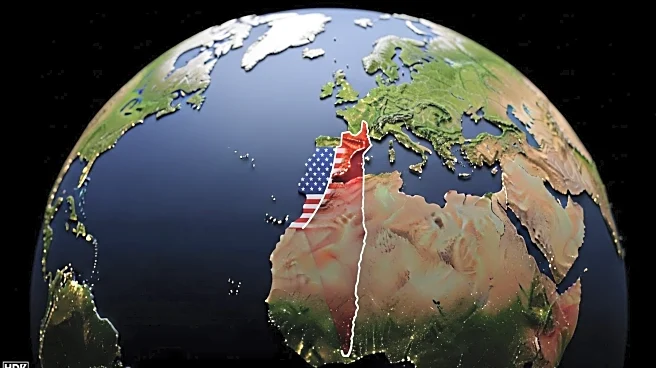What's Happening?
The U.S. government has revoked the visa of Palestinian President Mahmoud Abbas, along with 80 other officials, ahead of the United Nations General Assembly's annual high-level meeting. This decision, announced by U.S. Secretary of State Marco Rubio, is cited as being in the interest of national security. The move has drawn widespread criticism, including from the European Union, which has urged the U.S. to reconsider. Palestinian presidential spokesperson Nabil Abu Rudeineh has called for the decision to be reversed, warning that it could increase tensions. The revocation comes as the Israeli military has declared Gaza City a combat zone, citing it as a Hamas stronghold.
Why It's Important?
The revocation of visas for Palestinian officials could have significant diplomatic repercussions, potentially escalating tensions in the Middle East. The decision may hinder efforts to revive peace talks between Israel and Palestine, particularly as it coincides with a high-level conference on a two-state solution co-hosted by France and Saudi Arabia. The U.S. action has been criticized as a violation of its commitments as the host country of the United Nations, raising questions about the implications for international diplomacy and the role of the U.S. in facilitating peace efforts. The move could also affect U.S. relations with European and Middle Eastern allies who support Palestinian statehood.
What's Next?
The Palestinian Authority and other international stakeholders are expected to continue diplomatic efforts to reverse the U.S. decision. The European Union and other countries may increase pressure on the U.S. to reconsider, especially in light of the upcoming UN General Assembly meeting. The situation in Gaza and the West Bank may also influence the international response, as ongoing conflicts could further complicate diplomatic relations. The U.N. has indicated it will seek clarification from the U.S. State Department regarding the visa revocations.
Beyond the Headlines
This development highlights the complex interplay between U.S. foreign policy and international diplomatic norms, particularly regarding the hosting of international organizations like the United Nations. The decision to revoke visas could set a precedent for how the U.S. manages its role as a host nation, potentially affecting future diplomatic engagements. Additionally, the move underscores the ongoing challenges in achieving a peaceful resolution to the Israeli-Palestinian conflict, with significant implications for regional stability and international relations.











